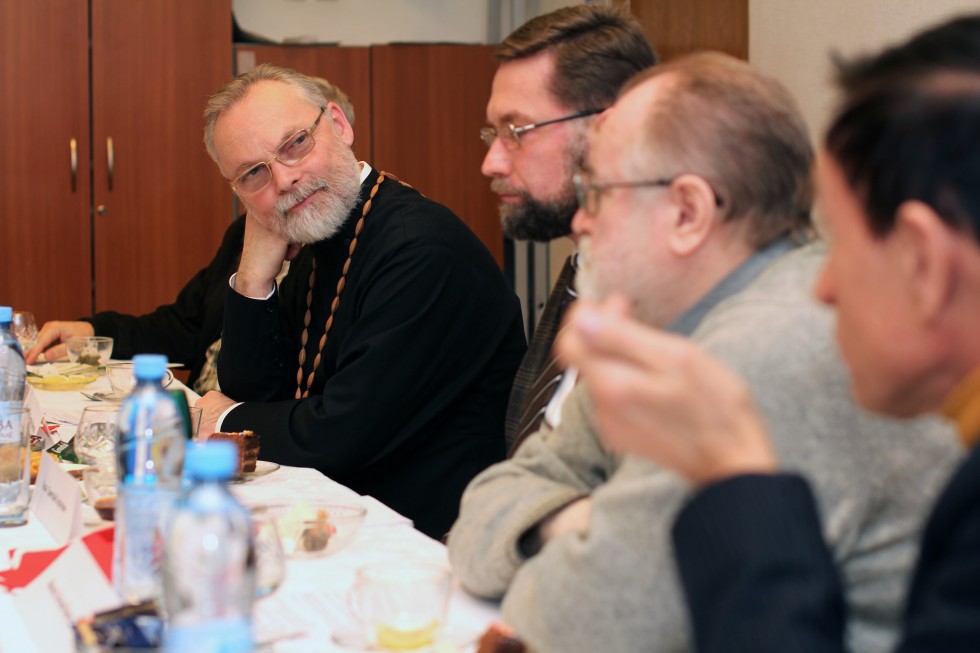Physicists and Theologians in Pursuit of the Meaning of Life
In the course of more than two years, St. Philaret’s Institute professors have been meeting with leading Russian theoretical physicists on a regular basis. During this time, they have been able to discuss the origins of the universe and the human’s place in it, criteria for verifying the authenticity of knowledge, the nature of good and evil, the correlation between the spiritual and the social in a human. ‘Christian understanding of the purpose and meaning of the human life’ was on the agenda drafted by the scientists for the last meeting.
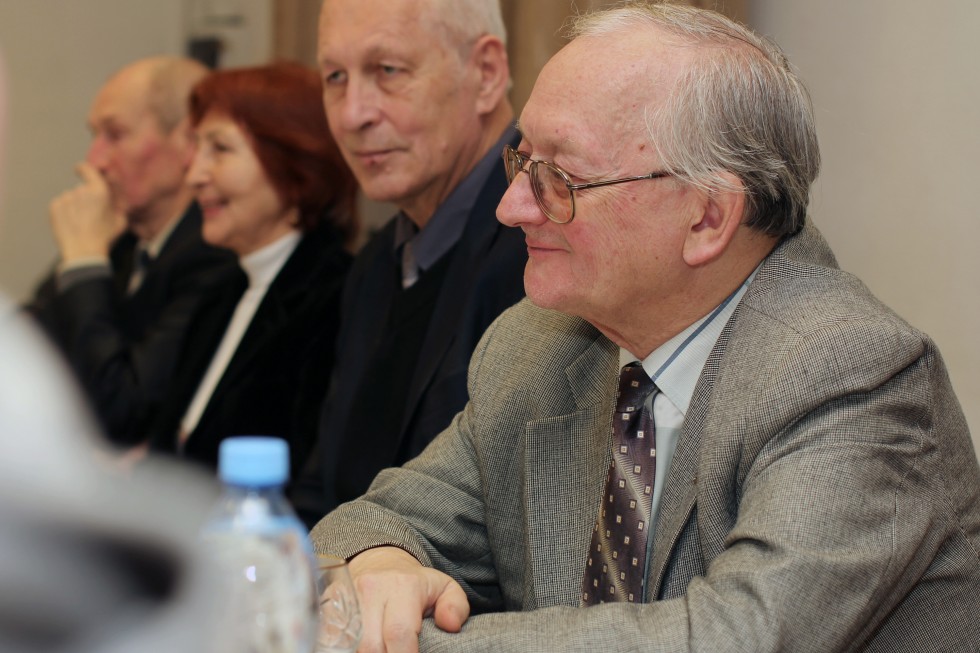
Alexey Starobinsky, Academician of the Russian Academy of Sciences
The three-hour discussion enabled enhanced actualisation and elaboration of the issues to be considered. Scientists explored the possibility of adherence to Christian ideals without Christ and questioned the existence of such ideals. Do Christians have to take Christ’s word ‘at face value’ or can it be verified?
At the same time, some common myths about Christianity were debunked. The discussion participants established that such life purposes as getting into heaven, saving one’s soul or achieving the common good, often attributed to Christians, do not reflect Christian views on the meaning of life.
“Christianity unveils and incarnates such qualities that reveal man’s kinship with God”, said Fr. Georgy Kochetkov, Rector of St. Philaret’s Institute. In contrast to natural forces, those qualities – faith, hope, love, meaning, freedom, gratitude – are not subject to scientific research. At the same time, anyone can experience them regardless of their national, cultural, and social identity. There is no organisation, ideology or force of nature that could externally limit the extent to which people and human communities pursue communion and freedom, and thirst for meaning and authenticity.
However, in reality humans often have to face the intolerable absence of meaning in their own life. In this regard, Dr. Grigory Gutner, Head of SFI’s Department of Philosophy, Humanities and Natural Sciences, referred to the radical statement by Albert Camus: ‘There is only one fundamental philosophical problem and that is suicide’. Is life really worth living or not?
Christianity does not have a ready answer to this question. Christ has never offered a set of rules or social principles to guarantee meaning to any individual life. People of this world see Him claiming (rather pretentiously) to be the Way, Truth and Life. “The Founder of Christianity leaves us no choice: we can either accept Him or declare Him a liar,” said David Gzgzyan, Head of Theology Studies and Liturgics Department at SFI. “Trusting Him means having to look for confirmation of His words in your own life. Taking His word at face value is something He has ruled out.”
During the discussion Academician Alexey Starobinsky smiled mysteriously and every once in a while aptly translated theological metaphors into the language of science. For instance, he noted that closed systems were not a natural phenomenon. In nature, all systems are open. Originally, the irreversibility of entropy is not natural property but an approximate thermodynamic law arising from a simplified description of a system. Based on this comment, Alexander Kopirovsky, Academic Secretary of SFI, added that both the church and mankind could be viewed as ‘open systems’.
The conference moderator Maxim Zelnikov, Senior Research Associate at P.N. Lebedev Institute of Physics of the Russian Academy of Sciences and Lecturer at St. Philaret’s Institute, admitted that the very duration of the meetings was, in his view, a small Christmas miracle. The physicists and theologians agreed to revisit the discussion in March 2015.
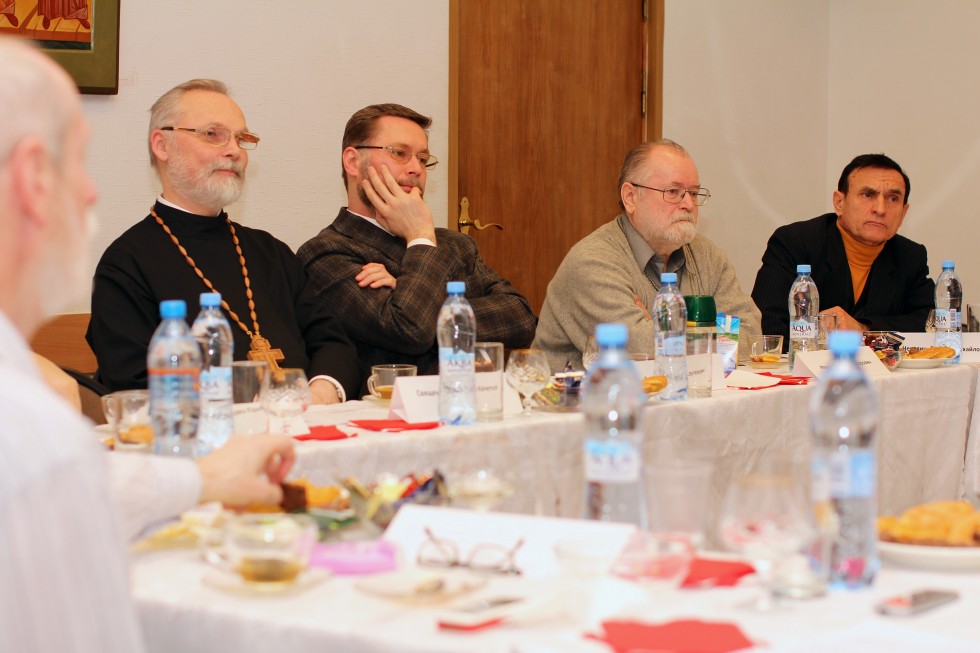
Fr. Georgy Kochetkov, Rector of SFI; Dmitry Gasak, Senior Vice-Rector of SFI; Evgeny Ivanov, Senior Research Associate at the N.V. Pushkov Institute of Terrestrial Magnetism, Ionosphere and Radio Waves Propagation; Sergey Neretin, Chief Specialist at the ‘Kurchatov Institute’ National Research Centre
The discussion brought together Dmitry Gasak, Senior Vice-Rector of SFI; Sergey Rubin, Doctor of Physics and Mathematics / Professor of the National Nuclear Research University (Moscow Engineering and Physics Institute); Alexander Bagrov, Doctor of Physics and Mathematics, Leading Research Associate at the Institute of Astronomy of the Russian Academy of Sciences; Galina Shpatakovskaya, Doctor of Physics and Mathematics, Leading Research Associate at M.V. Keldysh Institute of Applied Mathematics; Vladimir Karpov, Doctor of Physics and Mathematics (I.S. Bruk Institute of Electronic Control Machines); Evgeny Ivanov, PhD in Physics and Mathematics, Senior Research Associate at N.V. Pushkov Institute of Terrestrial Magnetism, Ionosphere and Radio Waves Propagation; Boris Aliyev, PhD in Physics and Mathematics, Assistant Professor at Moscow State University of Design and Technology; Sergey Neretin, Chief Specialist at the ‘Kurchatov Institute’ National Research Centre; Vladimir Logvinenko, Senior Lecturer at People’s Friendship University of Russia.
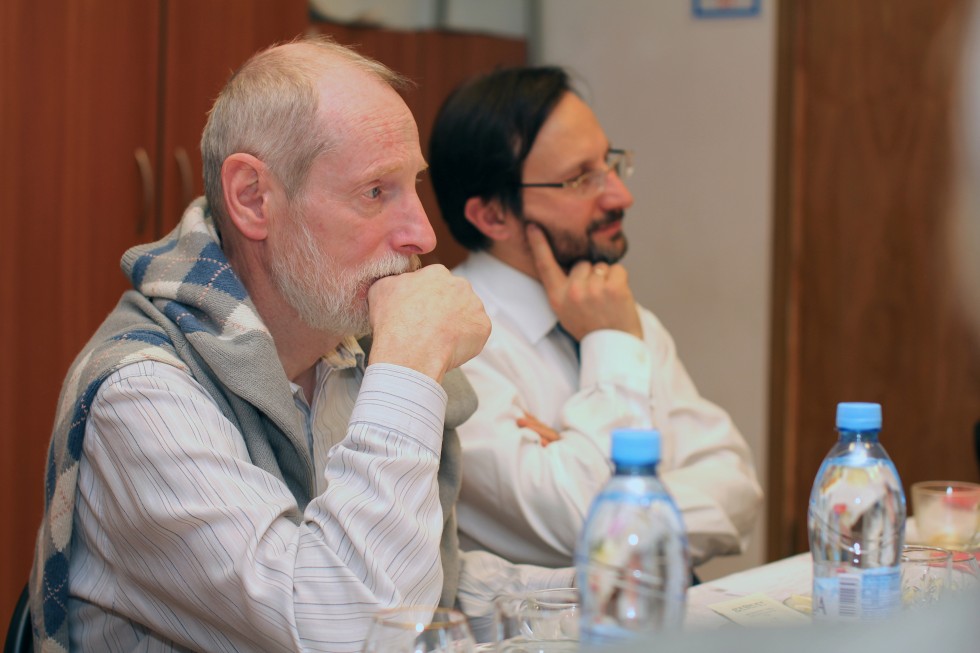
Dr. Grigory Gutner, Head of SFI’s Department of Philosophy, Humanities and Natural Sciences, and Maxim Zelnikov, Senior Research Associate at P.N. Lebedev Institute of Physics of the Russian Academy of Sciences and Lecturer at St. Philaret’s Institute
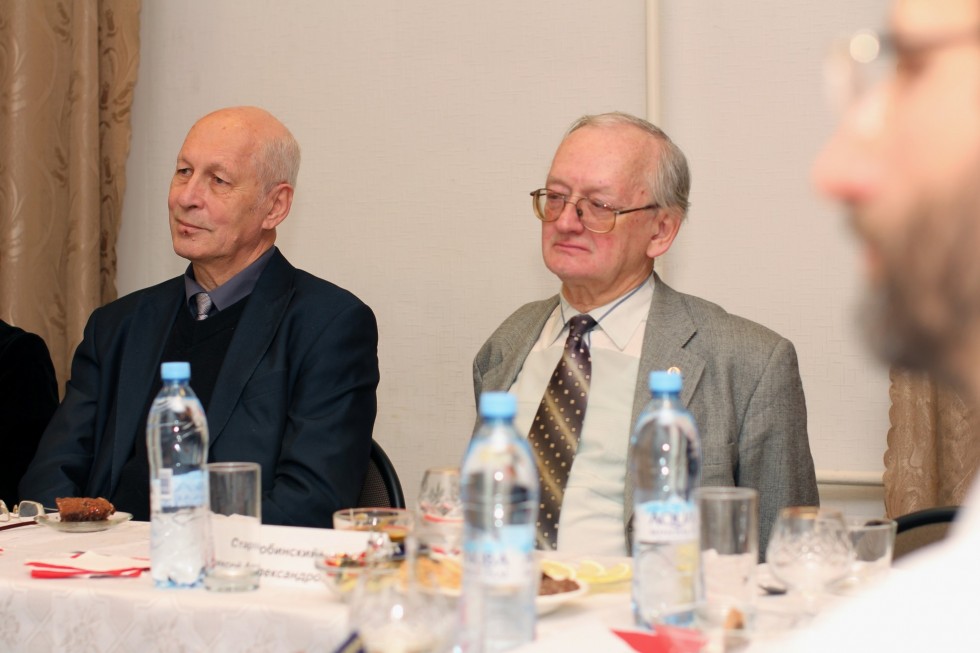
Alexander Bagrov, Leading Research Associate at the Institute of Astronomy of the Russian Academy of Sciences, and Alexey Starobinsky, Academician of the Russian Academy of Sciences
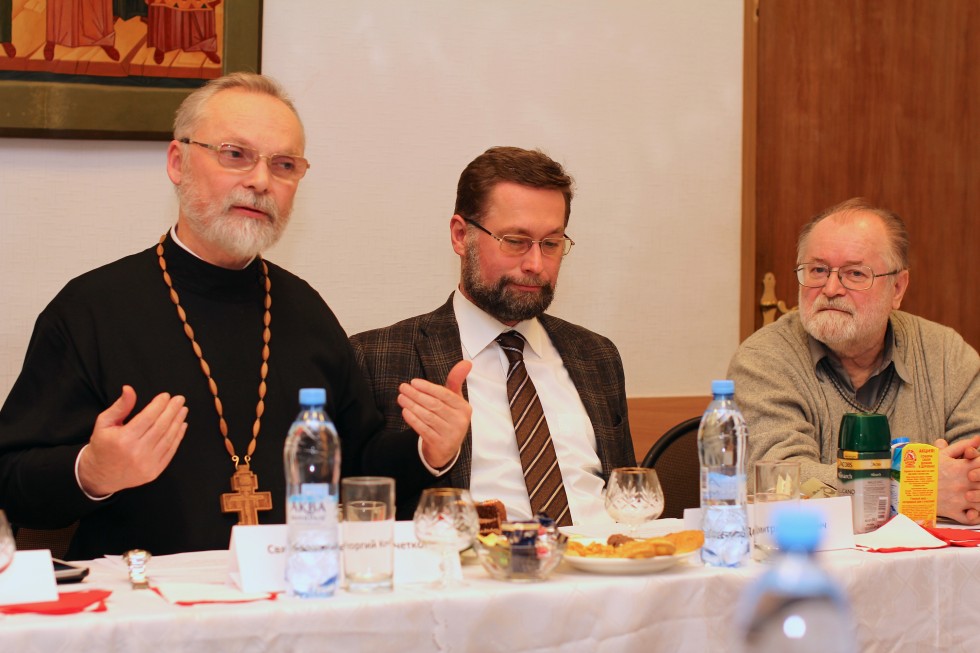
Fr. Georgy Kochetkov, Rector of SFI; Dmitry Gasak, Senior Vice-Rector of SFI; Evgeny Ivanov, Senior Research Associate at the N.V. Pushkov Institute of Terrestrial Magnetism, Ionosphere and Radio Waves Propagation;
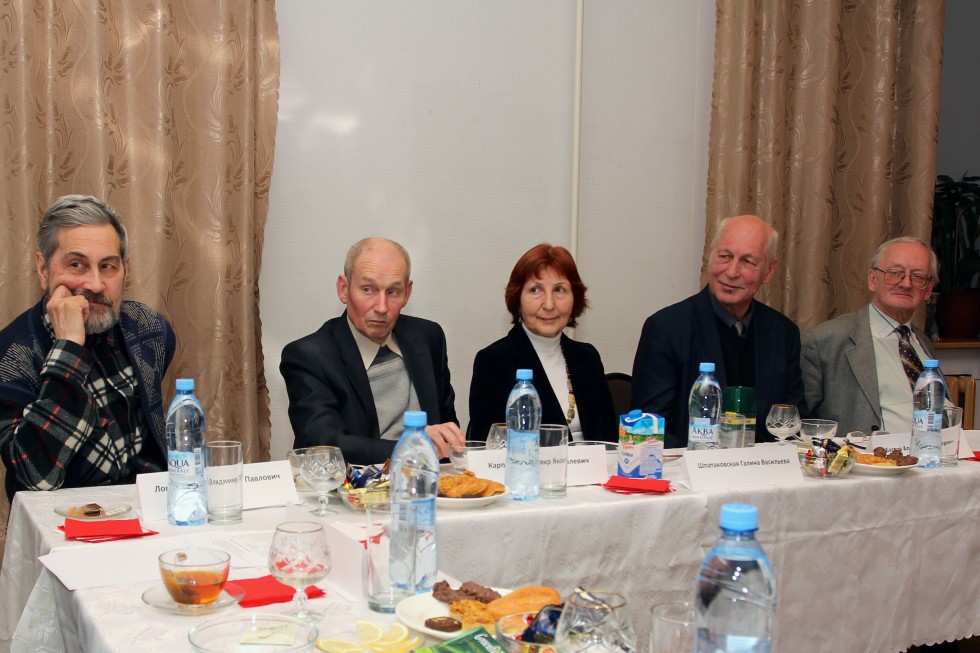
Vladimir Logvinenko, Senior Lecturer at People’s Friendship University of Russia; Vladimir Karpov (I.S. Bruk Institute of Electronic Control Machines); Galina Shpatakovskaya, Leading Research Associate at M.V. Keldysh Institute of Applied Mathematics; Alexander Bagrov, Leading Research Associate at the Institute of Astronomy of the Russian Academy of Sciences; Alexey Starobinsky, Academician of the Russian Academy of Sciences
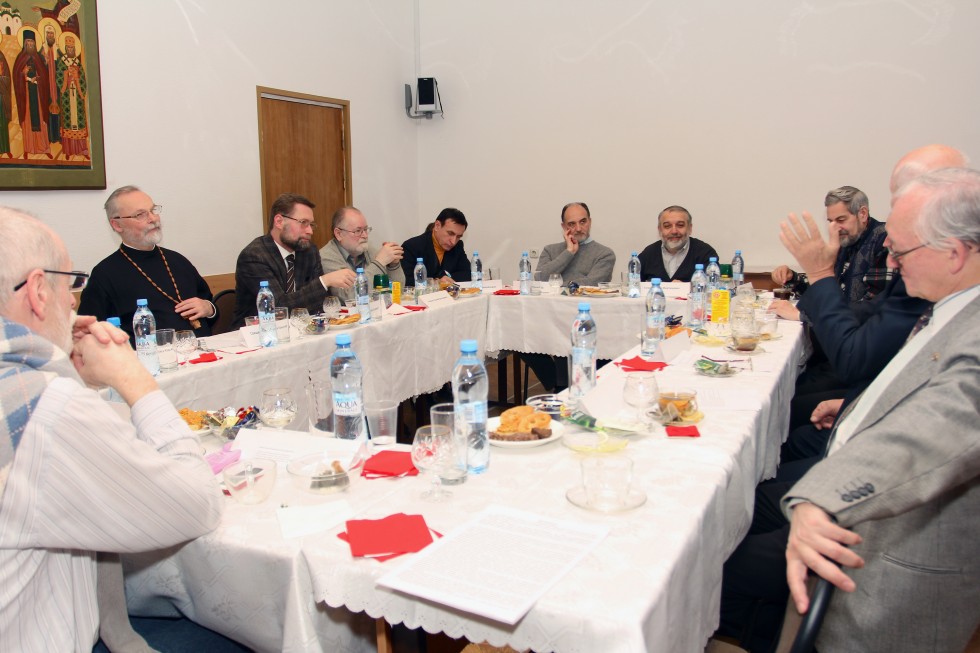
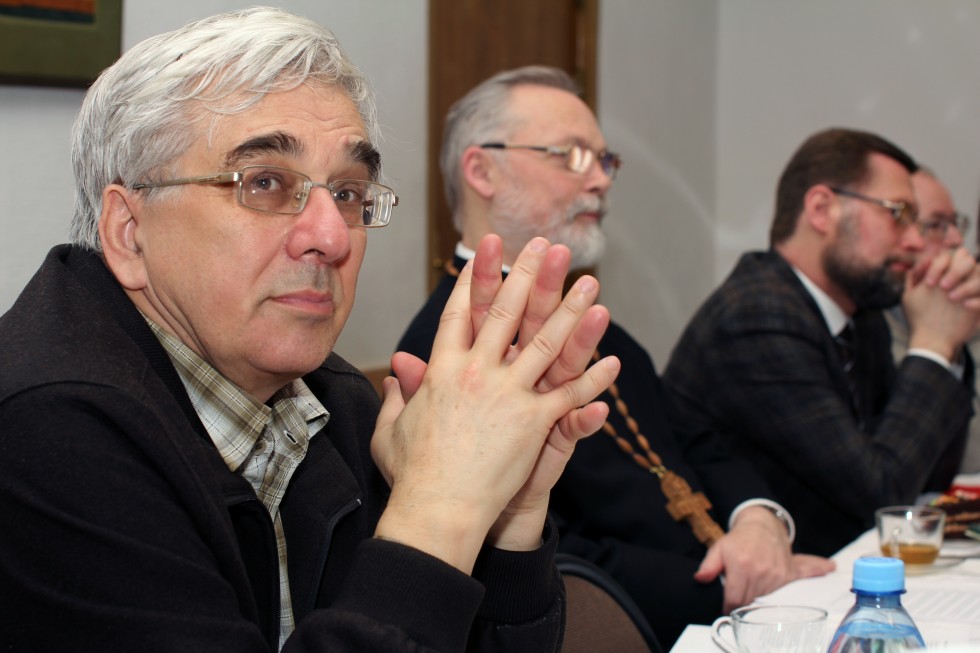
Sergey Rubin, Professor of the National Nuclear Research University (Moscow Engineering and Physics Institute)
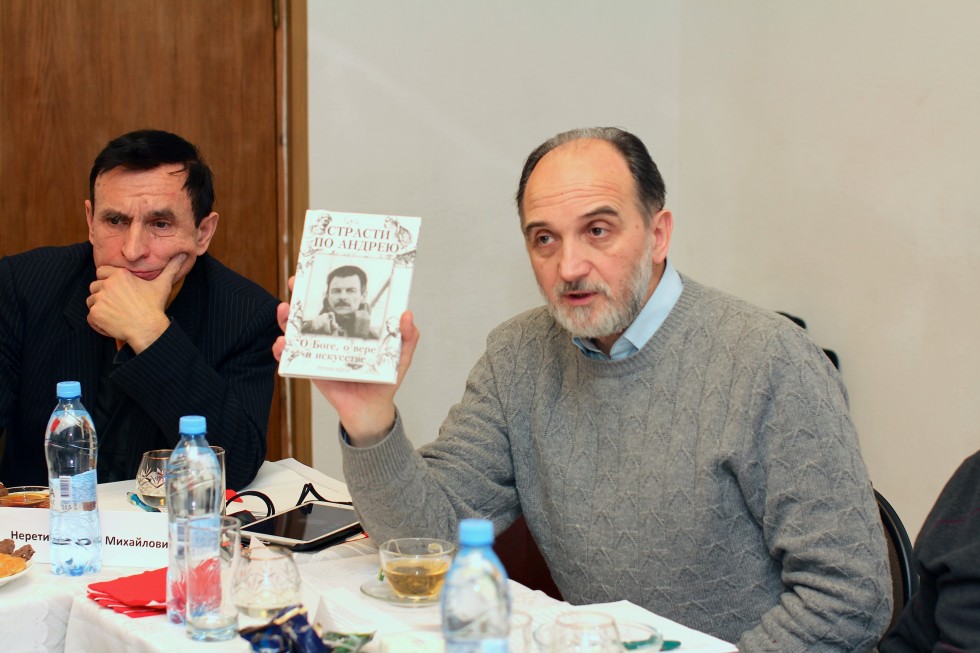
Sergey Neretin, Chief Specialist at the ‘Kurchatov Institute’ National Research Centre, and Alexander Kopirovsky, Academic Secretary of SFI
